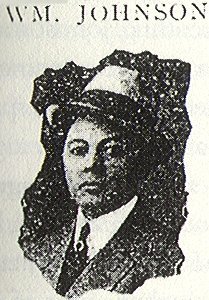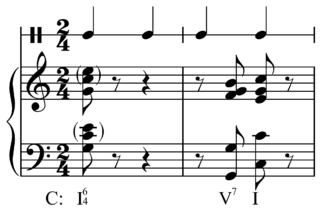Related Research Articles

Joseph Nathan "King" Oliver was an American jazz cornet player and bandleader. He was particularly recognized for his playing style and his pioneering use of mutes in jazz. Also a notable composer, he wrote many tunes still played today, including "Dippermouth Blues", "Sweet Like This", "Canal Street Blues", and "Doctor Jazz". He was the mentor and teacher of Louis Armstrong. His influence was such that Armstrong claimed, "if it had not been for Joe Oliver, Jazz would not be what it is today."

William Manuel "Bill" Johnson was an American jazz musician who played banjo and double bass; he is considered the father of the "slap" style of double bass playing.

Clarence Williams was an American jazz pianist, composer, promoter, vocalist, theatrical producer, and publisher.

Okeh Records is an American record label founded by the Otto Heinemann Phonograph Corporation, a phonograph supplier established in 1916, which branched out into phonograph records in 1918. The name was spelled "OkeH" from the initials of Otto K. E. Heinemann but later changed to "OKeh". Since 1965, Okeh was a subsidiary of Epic Records, a subsidiary of Sony Music. Today, OKeh is a jazz imprint, distributed by Sony Masterworks.
"Potato Head Blues" is a Louis Armstrong composition regarded as one of his finest recordings. It was made by Louis Armstrong and his Hot Seven for Okeh Records in Chicago, Illinois on May 10, 1927. It was recorded during a remarkably productive week in which Armstrong's usual Hot Five was temporarily expanded to seven players by the addition of tuba and drums. Some scholars have suggested that a key melodic figure in "Potato Head Blues" was picked up by Hoagy Carmichael for "Stardust." Its musical composition entered the public domain on January 1, 2023.
The Hot Five was Louis Armstrong's first jazz recording band led under his own name.
Louis Armstrong and his Hot Seven was a jazz studio group organized to make a series of recordings for Okeh Records in Chicago, Illinois, in May 1927. Some of the personnel also recorded with Louis Armstrong and His Hot Five, including Johnny Dodds (clarinet), Lil Armstrong (piano), and Johnny St. Cyr. These musicians were augmented by Dodds's brother, Baby Dodds (drums), Pete Briggs (tuba), and John Thomas. Briggs and Thomas were at the time working with Armstrong's performing group, the Sunset Stompers.
"West End Blues" is a multi-strain twelve-bar blues composition by Joe "King" Oliver. It is most commonly performed as an instrumental, although it has lyrics added by Clarence Williams.
Robert Bernard Alter is an American professor of Hebrew and comparative literature at the University of California, Berkeley, where he has taught since 1967. He published his translation of the Hebrew Bible in 2018.

In tap dancing, jazz, and blues, stop-time is an accompaniment pattern interrupting, or stopping, the normal time and featuring regular accented attacks on the first beat of each or every other measure, alternating with silence or instrumental solos. Stop-time occasionally appears in ragtime music. The characteristics of stop-time are heavy accents, frequent rests, and a stereotyped cadential pattern. Stop-timing may create the impression that the tempo has changed, though it has not, as the soloist continues without accompaniment. Stop-time is common in African-American popular music including R&B, soul music, and led to the development of the break in hip hop.
"Memories of You" is a popular song about nostalgia with lyrics written by Andy Razaf and music composed by Eubie Blake and published in 1930.
I'll Be Glad When You're Dead You Rascal You is a 1932 American pre-Code Fleischer Studios animated short film starring Betty Boop, and featuring Koko the Clown and Bimbo. The cartoon features music by and a special guest appearance from jazz trumpeter Louis Armstrong and his Orchestra playing "You Rascal You". The title of the film comes from the song, written by Sam Theard in 1931.
Reuben "River" Reeves was an American jazz trumpeter and bandleader.
"Rockin' Chair is a 1929 popular song with lyrics and music composed by Hoagy Carmichael. Musically it is unconventional, as after the B section when most popular songs return to A, this song has an A-B-C-A1 structure. Carmichael recorded the song in 1929, 1930, and 1956. Mildred Bailey made it famous by using it as her theme song. Like other 1920s standards, "Rockin' Chair" relied on the stereotypes of minstrelsy, citing "Aunt Harriet" from the anti-Uncle Tom song "Aunt Harriet Becha Stowe" (1853).

"Heebie Jeebies" is a composition written by Boyd Atkins which achieved fame when it was recorded by Louis Armstrong in 1926. Armstrong also performed "Heebie Jeebies" as a number at the Vendome Theatre. The recording on Okeh Records by Louis Armstrong and his Hot Five includes a famous example of scat singing by Armstrong. After the success of the recording, an accompanying dance was choreographed and advertised by Okeh.
Liza Mae "May" Alix was an American cabaret and jazz vocalist.
Joe "Fox" Smith(néJoseph Emory Smith; June 28, 1902 – December 2, 1937) was an American jazz trumpeter.
"Dippermouth Blues" is a song first recorded by King Oliver's Creole Jazz Band for Gennett Records in April 1923 and for Okeh Records in June of that same year. It is most often attributed to Joe "King" Oliver, though some have argued that Louis Armstrong was in fact the composer. This is partly because "Dippermouth", in the song's title, was a nickname of Armstrong's. Also, the phonograph recordings from 1922 gave credit to Armstrong and Oliver jointly. The song is a strong example of the influence of the blues on early jazz. There is a twelve-bar blues harmonic progression, with frequent bent notes and slides into notes.
Ollie Powers was an American jazz drummer and vocalist.
Hot Chocolates is a musical revue with music by Fats Waller and Harry Brooks and book by Andy Razaf. It was originally titled Tan Town Topics in hopes it would be picked up by Broadway. Performed at the Hudson Theater in New York City, it was directed by Leonard Harper and ran for 219 performances from June 20, 1929, to December 14, 1929. It is also referred to as Connie's Hot Chocolates. It was staged, directed and produced by Leonard Harper. While the revue featured music and singing, including the subsequent hit "Aint Misbehavin'," it was praised for the cast's dancing, including its male and female chorus lines.
References
- ↑ "Thomas Brothers – Musicologist".
- ↑ "Thomas Brothers".
- ↑ "Thomas Brothers - John Simon Guggenheim Memorial Foundation". Archived from the original on 2011-06-22. Retrieved 2010-04-29.